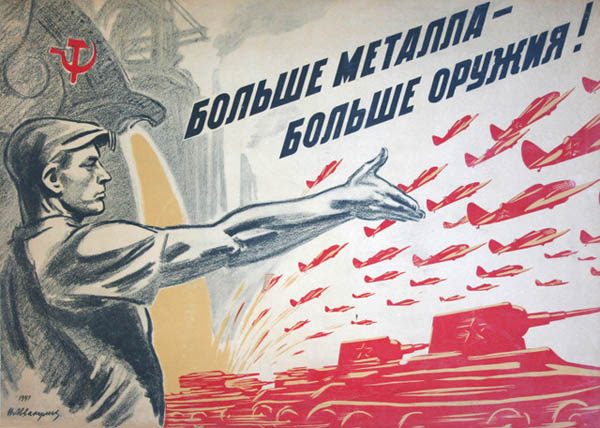|
|||||||||||||
Anarcho-Syndicalism versus Vol. 2: On Organizing the
Post #01
Andy: First a friendly suggestion. I think if your comments were a bit shorter, it would be easier for people to engage the discussion. Let me pull one thread out of the weave: Andy writes:
I think this closing remark highlights a general fantasy quality that is at the root of this theory -- it is rooted in an overestimation of spontaneity, an assumption of automatic consciousness, and a rather crudely anti-communist history that imagines there were no complexities or difficulties until those damn communists created them. In fact, it is never true that "everyone was on the same page." It is not true that everyone knows what the problem is and what needs doing and that they only need an initiating spark of "boldness." It wasn't true in the early civil rights movement, and it isn't true anywhere else. The consciousness of the people is highly uneven and contradictory. And people are *spontaneously* very influenced by ideas that assume the permanence (and even the justice) of this system. Anyone involved in struggle (not just revolutions, but even simple strikes or protests) knows that people are NEVER simply "on the same page." The people always break down into advanced, intermediate and backward and even the relatively advanced are (most of the time, and especially at the beginning of struggles) far from sophisticated about the issues and possibilities. And the defining feature of the relatively backward is both that they (generally) oppose the struggles of the people, and aggressively represent (in the debates among the people) the arguments and outlook of the ruling classes. Also: The discussion of history (both the civil rights movement and the Russian revolution) leaves out the painstaking work of conscious activists arguing, educating, revealing and organizing the people. these were not just bold sparks that ignited the already-formed. The Russian Revolution was just made by "workers suddenly joining together and creating their unity"? No. And in fact there was profound DIS-unity among the workers at many places and times in that revolution. The start of a revolution is marked when a SECTION of the people embrace a consistent struggle against the status quo -- when a revolutionary people emerges on the stage, speaking and acting. But it is almost always true that this advanced force is a minority, seeking to win over more intermediate, acting at times on its own, facing and attempting to neutralize the backward. And there is (always, always) needed within that, the creative action of conscious and organized revolutionaries, the bacilli of the contagion. It isn't always present, but it is always needed.
Post #02
Greetings, Mike E,
By all means, you have the right to believe whatever you want. But I'm arguing from fact and reality, not from rhetoric. In fact, in this and the other discussion, I've been the only individual to bring up a reference or a resource to explain why I believe history occurred as it has. And in fact, this is somewhere between twenty and thirty resources. Now, you typed an entire page there, of what you believed actually happened, but you couldn't take a single sentence to tell me where you're getting your information from. Sure, I'll just throw every history book I've ever read into the garbage can, and start believing this guy that I met on the internet, and then using that as my reference. Of course. What other logical choice do I have? Just because workers spontaneously seized their industries does not mean that this took massive amounts of planning. From the Merriam-Webster's Dictionary, the first definition for spontaneous is "proceeding from natural feeling or native tendency without external constraint". After the election of a Liberal-Socialist Coalition, eighty-thousand workers seized three thousand farms. [*1] In Barcelona, miles and miles and miles away, workers seized transit, manufacturing, and other significant industries. [*2] These were not directed, coordinated efforts, and likewise, with the fall the Tzar, we see the exact same thing. Workers, without any central directive whatsoever, seized industries and businesses. [*3] What's your argument? That these spontaneous seizures of industries by the workers never occured? And on the contrary, they required extensive planning. Bakunin visited Spain in the 1870's, and it might have survived as a Republic, and not a Monarchy, if Marx didn't try to intervene. [*4] But he planted the seed of anarchy that was to grow and develop over the course of several decades. Almost seventy years of organizing and activism, and still, it had prepared the workers to spontaneously act on their own behalf. You must be misunderstanding the definition of spontaneous, as it doesn't mean without preparation. The Anarcho-Syndicalists and radical unionists, during the Spanish Civil War and the Russian Revolution, had prepared the people the best for seizing industries and organizing society according to our own needs. So, I really have no idea how you're trying to capsulize my beliefs as
Where are you getting this idea from? The 1905 Russian Revolution was a worker-led movement that created a Constitutional Monarchy out of an Absolutist Monarchy. [*5] By 1917, the Tzar had basically proven that he had no respect for the elected Duma, or the people's elective will. Once again, the workers mobilized, without any centralized direction, and strikes once again brought the Tzar to the ground. This resembles a conversation between two, distinct personalities. The workers demand a constitution, and once they get it, they stop striking, but once the Tzar proves that he doesn't care about it, they strike again! There was no centralized leadership in either case, and Stalin and Lenin generally wrote against the organizations that prepared those workers for Revolution. [*6] I certainly understand how you think history went down. Can you explain why you think that? Andy Carloff, Resources *1. Abel Paz, Durruti: The People Armed, p. 181.
|





